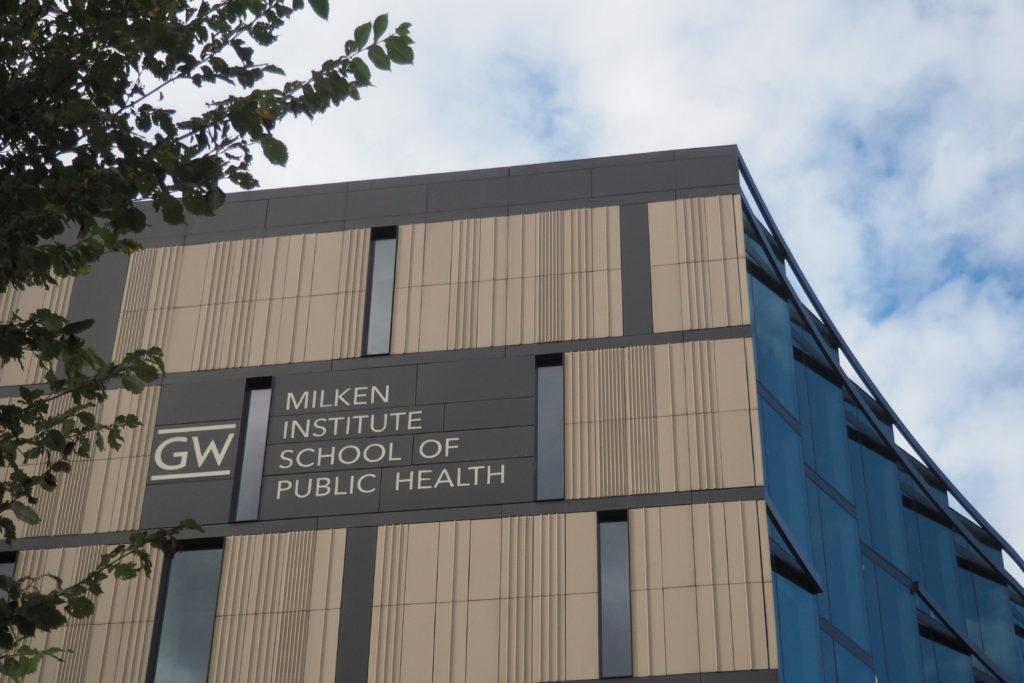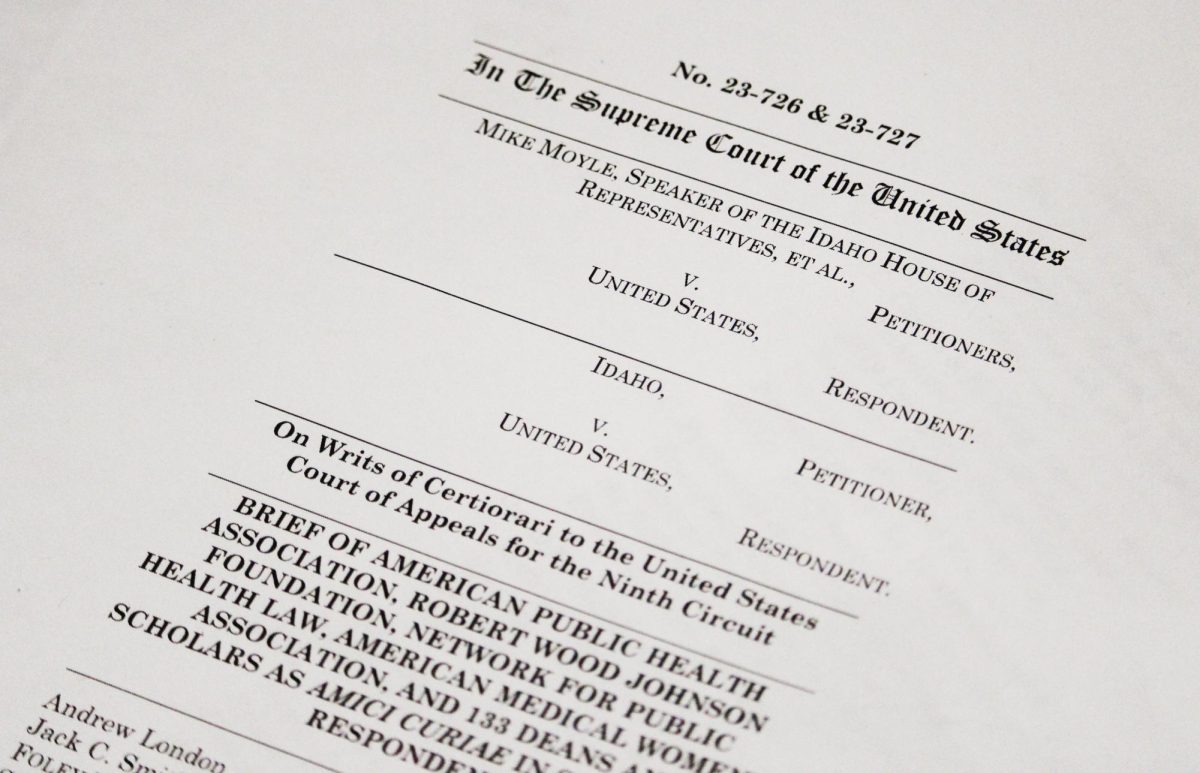Faculty from across GW’s nine schools are advocating for policies on climate health, air quality and global warming as part of a collaborative research institute that publicly launched earlier this semester.
The Climate and Health Institute is composed of professors who are conducting policy-based research in areas like nutrition and greenhouse gas emissions to help mitigate the global climate crisis. Susan Anenberg, the director of the Climate and Health Institute, said the research will focus on shifting away from fossil fuels, improving air quality and eliminating extreme heat waves.
“The long-term goal is to help governments and stakeholders around the world mitigate the climate crisis to equitably improve public health, so we’re really bringing a health and equity lens to the climate change policy debates,” she said.
She said the professors who are part of the institute specialize in a wide range of topics including the effects of global warming on seasonal allergies and protecting the infrastructure of drinking water systems.
Anenberg added that professors formally “chartered” the institute in May, but they built the official website over the summer and launched the site this September. The website features the institute’s seminar series that communicates ongoing global work on climate change and related health effects.
She said since its launch, the institute hosted several guest speakers over Zoom, like Allison Crimmins – the director of the Fifth National Climate Assessment, a report analyzing recent climate change policies – and John Balbus, the interim director of the Health and Human Services Office of Climate Change and Health Equity, a sector of the U.S. Department of Health and Human Services pursuing environmental justice and equitable health care.
Anenberg said the institute is working to launch a master’s of public health degree with a concentration in climate and health – a program that will accept students starting in fall 2022 to integrate climate change into the Milken Institute School of Public Health curriculum. Milken currently offers one online master’s of public health concentration in health informatics and analytics.
Anenberg said the institute will continue to host guest speakers, researchers and policy debates to educate students on the threat of climate change.
“We think that climate change is the greatest threat to global and public health now and in the future, so we really need to ensure that we are integrating health and equity into climate policy debates,” she said.
She said the members of the institute plan to work with other groups like Sustainable GW, Planet Forward – a project based in the School of Media and Public Affairs that teaches environmental storytelling – and the Environmental Justice Action Network, a new student-lead environmental justice organization.
“The various organizations within GW can really start to collaborate and really advance GW’s role in mitigating climate change and protecting human health,” she said.
She said members of the institute submitted comments to the National Institutes of Health on how it can increase funding for research on climate and health while making equity a central area of focus.
“We are very open to working with a range of partners with the common goal of ensuring that health and equity are key elements of decision making around mitigating greenhouse gases,” Anenberg said.
David Michaels, a professor of environmental and occupational health epidemiology and a member of the institute, said the institute will incorporate the research of its 28 faculty members, including his own on the impacts of extreme heat exposure.
“We hope we can have an impact to better understand the public health impacts of climate change and research in a way that leads to improved public health protection,” Michaels said.
William Dietz, the director of the Sumner M. Redstone Global Center for Prevention and Wellness in the public health school and a member of the institute, said his global center program will work with the institute to continue advocating for policies addressing climate change’s effects on food sustainability in D.C., like those from the Green Food Purchasing Act. The D.C. Council passed the bill in May to require city agencies to purchase food that is sustainably produced.
“I decided that we needed to focus on developing political will to address the kinds of subsidies that sustain the system,” he said.
Robert Orttung, a research professor of international affairs and the director of research for Sustainable GW, said he is also working at the institute on research about how forest fires in the Arctic affect people’s respiratory system, wildlife and tourism.
He said he hopes to develop Sustainable GW’s research and teaching program through collaborations with the institute, as they both unite different disciplines across campus to address climate, health and environmental issues.
“What I see is part of the bigger sustainability goal is to try and integrate that as much as possible so that we can have effective solutions to these very complicated problems like climate change,” Orttung said.








